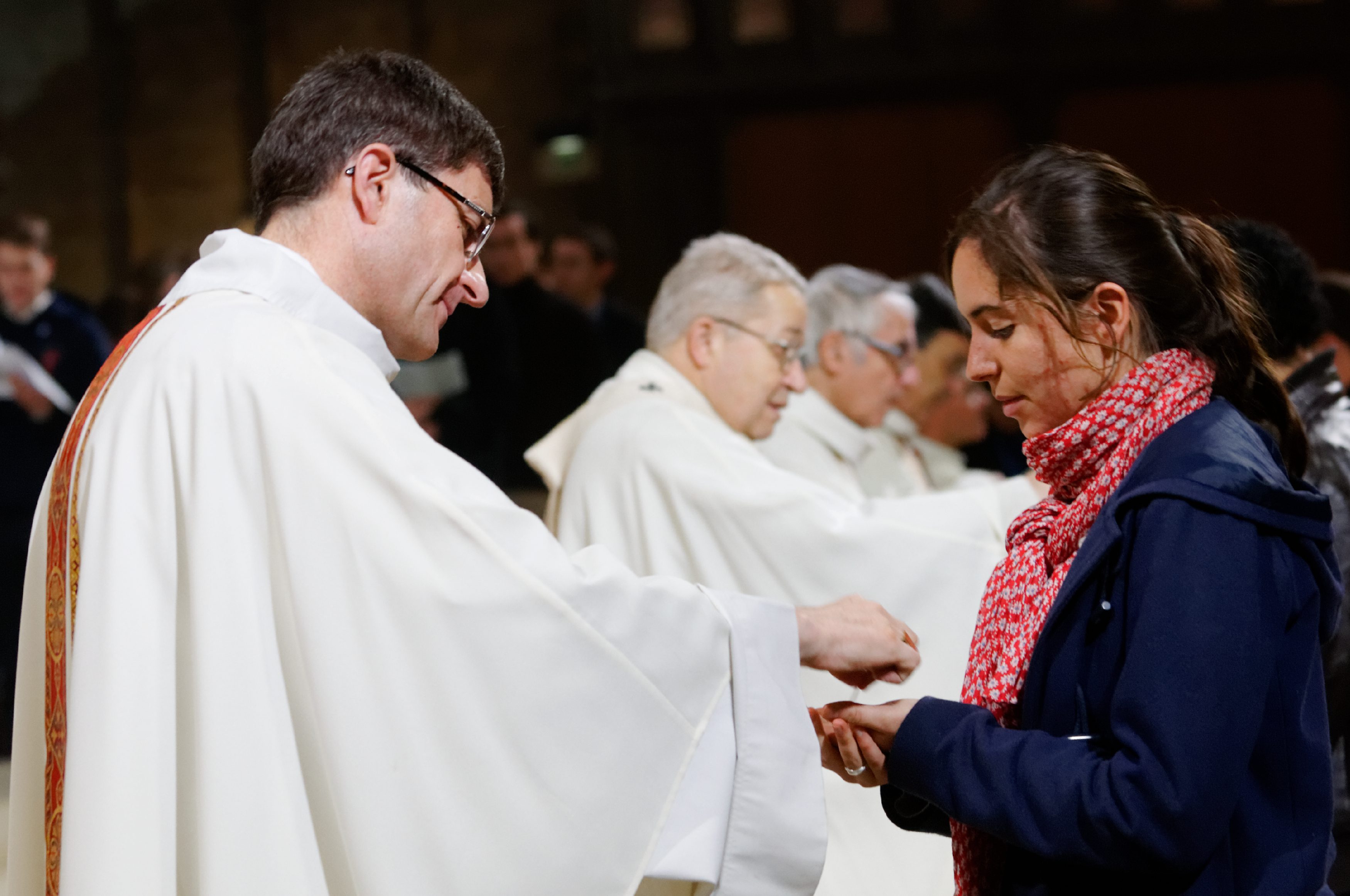By Rev. Nancy Neal
“Early one morning, for no earthly reason, Sara Miles, raised an atheist, wandered into a church, received communion, and found herself transformed — embracing a faith she’d once scorned … Before long, she turned the bread she ate at communion into tons of groceries, piled on the church’s altar to be given away.”
So reads the description on the back cover of Miles’ book, Take This Bread: A Radical Conversion (Ballantine Books, 2007).
In her appeal to the members of St. Gregory of Nyssa Episcopal Church in the Mission District of San Francisco to support The Food Pantry, Miles wrote:
“The first time I came to the table at St. Gregory’s, I was a hungry stranger. Each week since then, I’ve shown up — undeserving and needy — and each week, someone’s hands have broken bread and brought me into communion. Because of how I’ve been welcomed and fed in the Eucharist, I see starting a food pantry at the church not as an act of ‘outreach’ but one of gratitude. To feed others means acknowledging the amazing abundance we’re fed with by God. At St. Gregory’s, we do it now on Sundays, standing in a circle with the saints dancing bright above us. I believe we can do it one more time each week — gathered around the Table under those same icons, handing plastic bags full of macaroni and peanut butter to strangers, in remembrance of him.”
The Food Pantry started the same week that Miles was baptized. As she followed her call, she became not only the pantry’s director, but also director of ministry at St. Gregory’s. She led and wrote liturgies at the church, all while wrestling with the impossibility of being a Christian without a community and the ups and downs of living and breathing and engaging with real people.
The ritual of the Eucharist was expanded from a Sunday morning gathering of church members and visitors around the altar to the Friday afternoon distribution of free food from that very same altar for anyone in need. The ritual expanded again when volunteer after volunteer joined in running the pantry because they needed it. The group grew closer over a literal communion around a meal that was cooked during the setup and served before the church doors opened to the crowds.
Just as the ritual of communion changed Miles, the pantry communion changed the volunteers. It wasn’t some magic, overnight cure for their poverty and addiction, but they were changed on the inside for the better.
In the midst of Lent, I am struck that, while writing letters and emails and making phone calls as part of our advocacy work for Bread for the World doesn’t really take us into the streets, it does take us to the halls of Congress to proclaim the Gospel. We communicate with our members of Congress as a sign of the gratitude we have for all that God provides us just as the people of St. Gregory’s opened The Food Pantry.
Miles’ reflections remind me, though, that letters, emails, and phone calls are not enough. Our words are empty if we are not engaging in the real world out where Holy Spirit moves as freely as the wind. If we are not loving and listening and feeding and sharing in real relationships with people who are wildly different from us, we limit the ways we can grow and stretch and follow Jesus.
Rev. Nancy Neal is the deputy director of church relations at Bread for the World.



